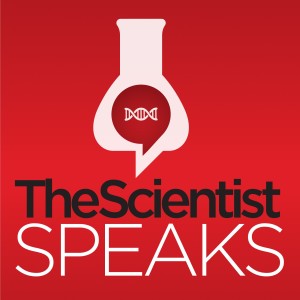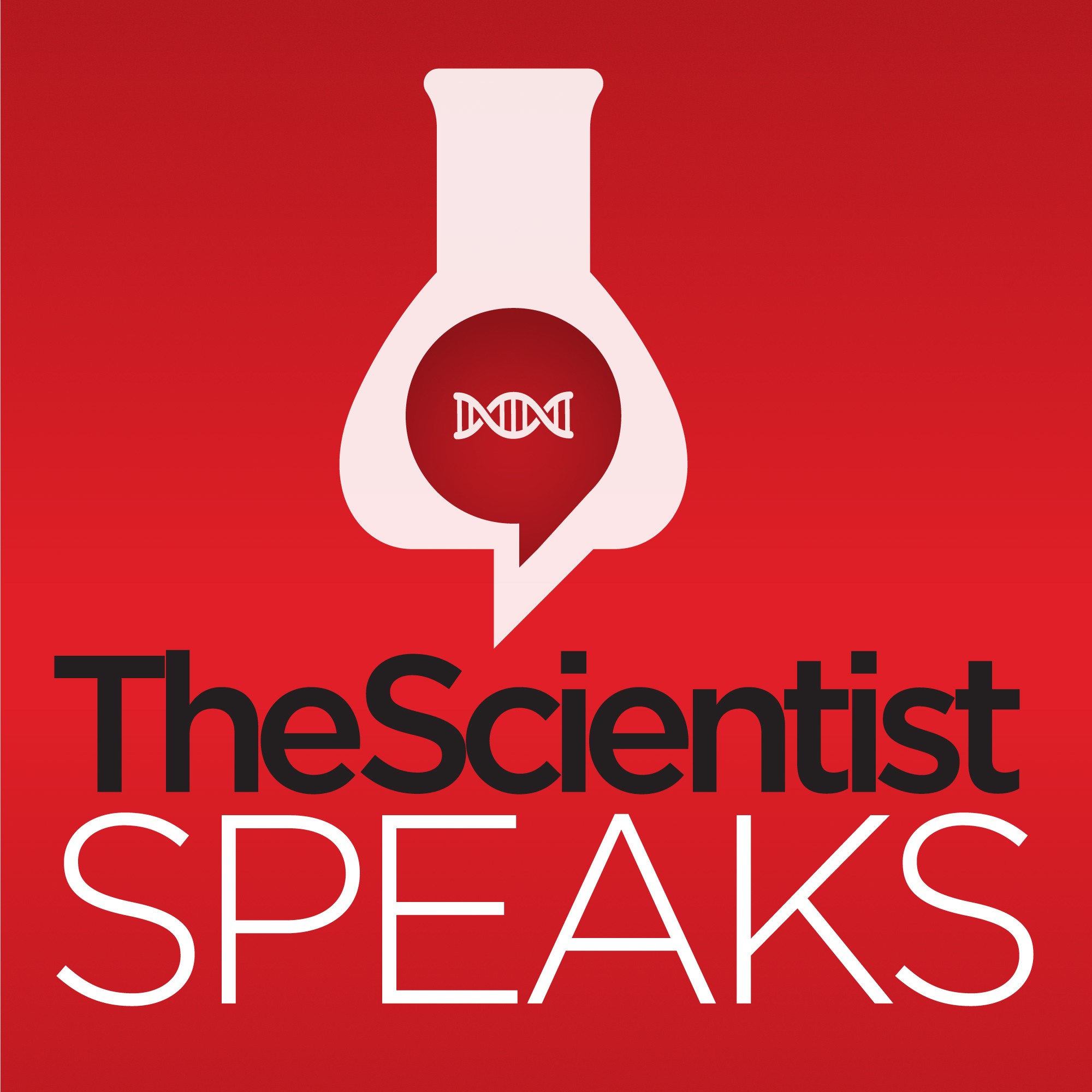Episodes

Wednesday Nov 17, 2021
Molecular Farming: The Future of Pharmaceuticals
Wednesday Nov 17, 2021
Wednesday Nov 17, 2021
Plant biotechnology is becoming an accepted avenue for pharmaceutical development. Researchers have engineered plants to grow biomolecules that can be made into therapeutics, including vaccines and monoclonal antibodies. These new technologies hold the promise of more readily bringing treatments to low-to-middle-income countries and providing rapid responses to future pandemics. In this episode, Niki Spahich from The Scientist’s Creative Services team spoke with Julian Ma, the director of the Institute for Infection and Immunity and professor of molecular immunology at St. George’s Hospital Medical School, to learn more.
The Scientist Speaks is a podcast produced by The Scientist’s Creative Services team. Our podcast is by scientists and for scientists. Once a month, we bring you the stories behind news-worthy molecular biology research. This month's episode is sponsored by Daicel Arbor Biosciences.

Thursday Sep 30, 2021
Homing in on New Anticancer Targets
Thursday Sep 30, 2021
Thursday Sep 30, 2021
Cancers are diverse and adaptable. That is why a staggering 97% of cancer drugs in clinical trials fail to receive FDA approval. Researchers try to stay one step ahead of cancer by studying the mechanisms that lead to drug resistance, finding new drug targets, and developing novel therapies, such as immunotherapeutics. In this episode narrated by Niki Spahich, Sejal Davla from The Scientist’s Creative Services team spoke with Jason Sheltzer, an assistant professor in the Department of Genomics, Genetics, and Epigenomics and Yale Cancer Center at the Yale School of Medicine, about his work on drug resistance in cancer, chromosomal instability in cancer cells, and approaches to identify new treatment strategies.
The Scientist Speaks is a podcast produced by The Scientist’s Creative Services team. Our podcast is by scientists and for scientists. Once a month, we bring you the stories behind news-worthy molecular biology research.

Tuesday Aug 31, 2021
The Reality of Regenerative Medicine
Tuesday Aug 31, 2021
Tuesday Aug 31, 2021
An estimated 107,000 people in the United States are currently on the waiting list for organ transplantation. These patients face waiting times of 3-5 years or longer before receiving an organ. Even after receiving a donated organ, organ-transplant patients face a high risk of tissue rejection. Regenerative medicine promises the possibility of laboratory-grown organs, specially tailored to the biology and needs of individual patients, but how close is this technology to reality?
In this month’s episode, we discuss the potential of regenerative medicine to replace damaged organs and tissues and cases where stem cell and regenerative medicine influence health today. Tiffany Garbutt from The Scientist’s Creative Services team spoke with Anthony Atala, the W. Boyce Professor and Chair of Urology and the G. Link Professor and Director of the Wake Forest Institute for Regenerative Medicine to learn more.
The Scientist Speaks is a podcast produced by The Scientist’s Creative Services team. Our podcast is by scientists and for scientists. Once a month, we bring you the stories behind news-worthy molecular biology research. This month's episode is sponsored by PHCbi.
PHC Corporation of North America is a global leader in the development, design, and manufacturing of laboratory equipment. Products include the space-saving and energy-efficient VIP® ECO, TwinGuard® and VIP Series ultra-low temperature freezers, cryogenic and biomedical freezers, pharmacy and high-performance refrigerators, cell culture CO2 and multigas incubators, and Drosophila and plant Growth Chambers.

Friday Jul 23, 2021
The Brain Behind the Bark: fMRI Imaging Our Canine Companions
Friday Jul 23, 2021
Friday Jul 23, 2021
Many secrets are locked inside the brain, including fundamental questions of how individuals perceive the world. Some researchers are seeking answers by mapping brain activity in response to stimuli. This work typically involves human subjects, but certain scientists are branching out to understand the minds of other animals. Niki Spahich from The Scientist’s Creative Services team spoke with Gregory Berns, a neuroscientist at Emory University who scans the brains of dogs trained to enter MRI machines, to learn more.
The Scientist Speaks is a podcast produced by The Scientist’s Creative Services team. Our podcast is by scientists and for scientists. Once a month, we bring you the stories behind news-worthy molecular biology research.

Tuesday Jun 01, 2021
Thieves on the Inside: Viral Control of Host Gene Expression
Tuesday Jun 01, 2021
Tuesday Jun 01, 2021
Viral genomes are small, but their products have large consequences for their hosts. During infection, viruses reshape the host gene expression landscape through clever mechanisms that promote viral replication and survival. Niki Spahich from The Scientist’s Creative Services team spoke with Britt Glaunsinger, a professor in the departments of plant microbial biology and molecular and cell biology at the University of California, Berkeley, to learn more.
Transforming Virology Research with Cryo-EM
Predicting the Immune Response with Single-Cell Analysis: Autoimmunity, Vaccination, and COVID-19
The Scientist Speaks is a podcast produced by The Scientist’s Creative Services team. Our podcast is by scientists and for scientists. Once a month, we bring you the stories behind news-worthy molecular biology research. This month's episode is sponsored by Sartorius.

Wednesday Mar 31, 2021
At the Breaking Point: Mitochondrial Deletions and the Brain
Wednesday Mar 31, 2021
Wednesday Mar 31, 2021
The brain requires a lot of energy generated by mitochondria to function properly. Researchers suspect that mutations and deletions in the mitochondrial genome have a bigger effect than previously appreciated, with implications for neurological disorders, such as major depressive disorder, Alzheimer’s disease, and beyond. Niki Spahich from The Scientist’s Creative Services team spoke with Brooke Hjelm, assistant professor of clinical translational genomics at the Keck school of medicine at the University of Southern California, to learn more.
The Scientist Speaks is a podcast produced by The Scientist’s Creative Services team. Our podcast is by scientists and for scientists. Once a month, we bring you the stories behind news-worthy molecular biology research.

Friday Feb 26, 2021
The Epigenetic Origins of Allergy and Asthma
Friday Feb 26, 2021
Friday Feb 26, 2021
Since the 1950s, there has been a rapid rise in the incidence of allergic diseases, particularly in western countries. Experts agree that the rapid increase in cases is not due to increased awareness, and the genetics behind allergies have not changed. But the environment has changed. Genetic predisposition affects the likelihood of developing allergies, but the environment acts on genetic background.
In this month’s episode, we discuss the epigenetic origins of allergies and asthma and explore the environmental exposures that affect our generation and the next. Tiffany Garbutt from The Scientist’s Creative Services team spoke with John Holloway, professor of allergy and respiratory genetics and associate dean of research at the University of Southampton, to learn more.

Wednesday Jan 27, 2021
The Long Haul: Improving Cardiac Cell Therapy Persistence
Wednesday Jan 27, 2021
Wednesday Jan 27, 2021
Cell therapies treat and repair the body using stem cells or their derivatives. These cells possess great therapeutic potential, but their beneficial effects often fade away over time. In this episode, we explore strategies to improve the persistence of stem cell-derived cardiomyocytes in the effort to remuscularize hearts after cardiac infarction. Niki Spahich from The Scientist’s Creative Services team spoke with Sara Nunes Vasconcelos, an assistant professor at the Institute of Biomaterials & Biomedical Engineering, University of Toronto, and a scientist at the Toronto General Hospital Research Institute, to learn more.
Technique Talk: 2D Stem Cell Culture
Experimental Cures for Fragile Patients: Prenatal Stem Cell and Gene Therapies
Quality Control for Cell Therapies
Highlights in Precision Medicine
The Scientist Speaks is a podcast produced by The Scientist’s Creative Services team. Our podcast is by scientists and for scientists. Once a month, we bring you the stories behind news-worthy molecular biology research.

Tuesday Dec 22, 2020
Decoding Smell: Demystifying Human Disease and Behavior
Tuesday Dec 22, 2020
Tuesday Dec 22, 2020
Odors bombard the human nose every day, whether the odors register consciously or not. The way the human brain processes these odors has the potential to characterize disease and shape everyday human interaction.
In this month’s episode, we explore the world of odor and how scientists use the sense of smell to better understand the human brain, disease, and behavior. Tiffany Garbutt from The Scientist’s Creative Services team spoke with Noam Sobel, Sela Professor of Neurobiology and Director of the Azrieli National Center for Human Brain Imaging and Research at the Weizmann Institute of Science, to learn more.
This month’s episode is sponsored by MilliporeSigma and 10x Genomics.
MilliporeSigma is a leading company for innovative, trusted products for genomic and protein sample prep, reliable antibodies, proteins, and enzymes, advanced cell culture, and lab water solutions. They provide researchers with best-in-class technologies, expertise, and services to accelerate discovery, including ZooMAb® recombinant antibodies that offer high specificity and reliable consistency.
10x Genomics builds solutions for interrogating biological systems at a resolution and scale that matches the complexity of biology. Their rapidly expanding suite of products, which includes instruments, consumables, and software, enables customers to make fundamental discoveries across multiple research areas, including cancer, immunology, and neuroscience.

Tuesday Dec 08, 2020
Cancer Immunotherapy: CRISPR Reveals Targets In Vivo
Tuesday Dec 08, 2020
Tuesday Dec 08, 2020
Welcome to The Scientist Speaks, a podcast produced by The Scientist’s Creative Services Team. Our podcast is by scientists and for scientists. Once a month, we bring you the stories behind news-worthy molecular biology research.
This episode is brought to you by 10x Genomics. 10x Genomics builds solutions to interrogate biological systems at a resolution and scale that matches the complexity of biology. Their rapidly expanding suite of products, which include instruments, consumables, and software, has enabled customers to make fundamental discoveries across multiple research areas, including cancer, immunology, and neuroscience.
While T cell immunotherapies effectively battle certain cancers, many cancers do not respond to these treatments. To find solutions to this problem, researchers use modern genetic techniques, such as genome-wide CRISPR-based screens, to enhance the anti-cancer immune response and increase cancer cell susceptibility to treatment. Niki Spahich from The Scientist’s Creative Services team spoke with Sidi Chen, assistant professor in genetics and systems biology at Yale University, to learn more.
To hear a fascinating story about using CRISPR screens, stem cell technology, and single cell sequencing to understand neuron stress and neurodegenerative diseases, check out our latest LabTalk episode at www.the-scientist.com/labtalkepisode2.

